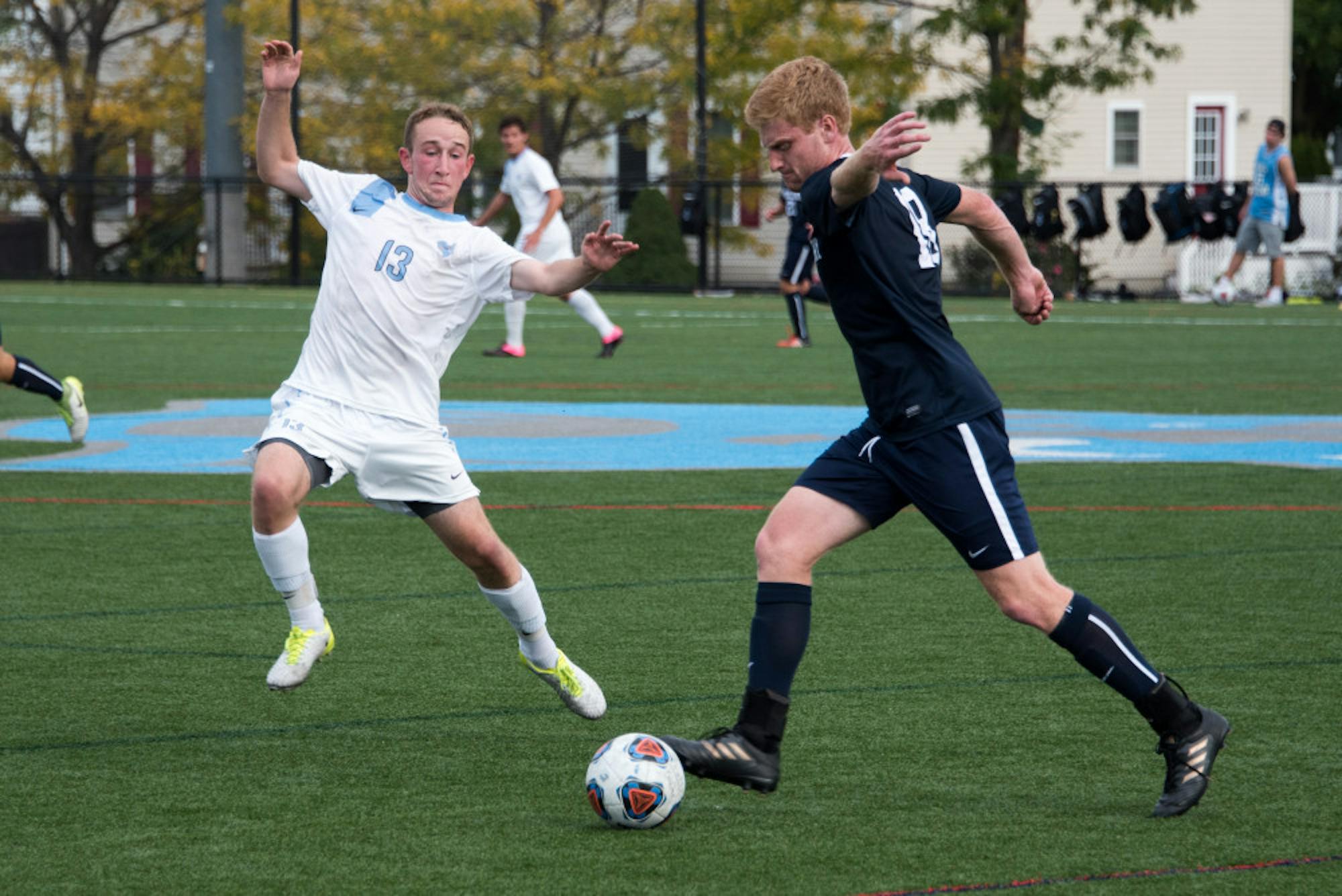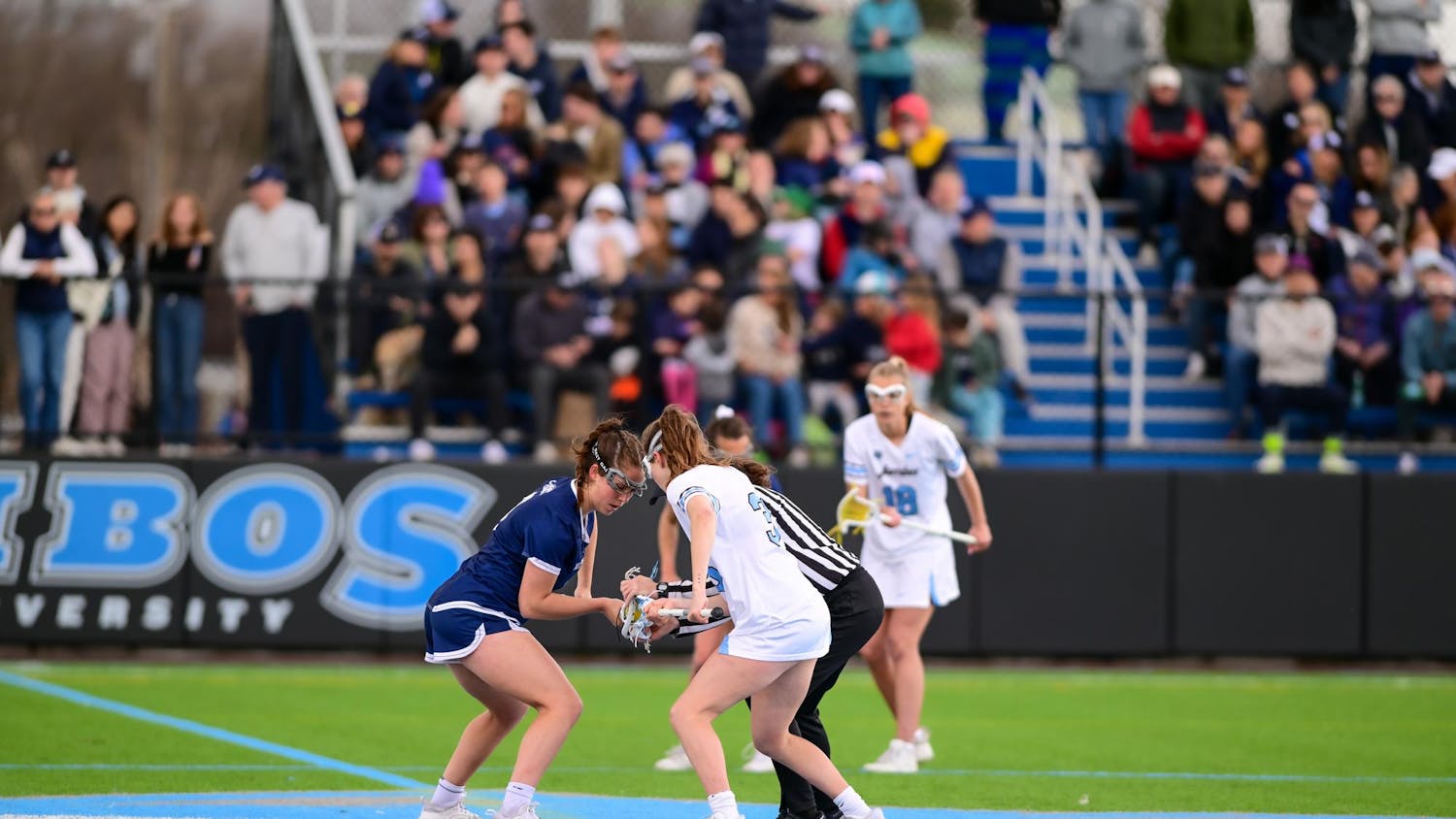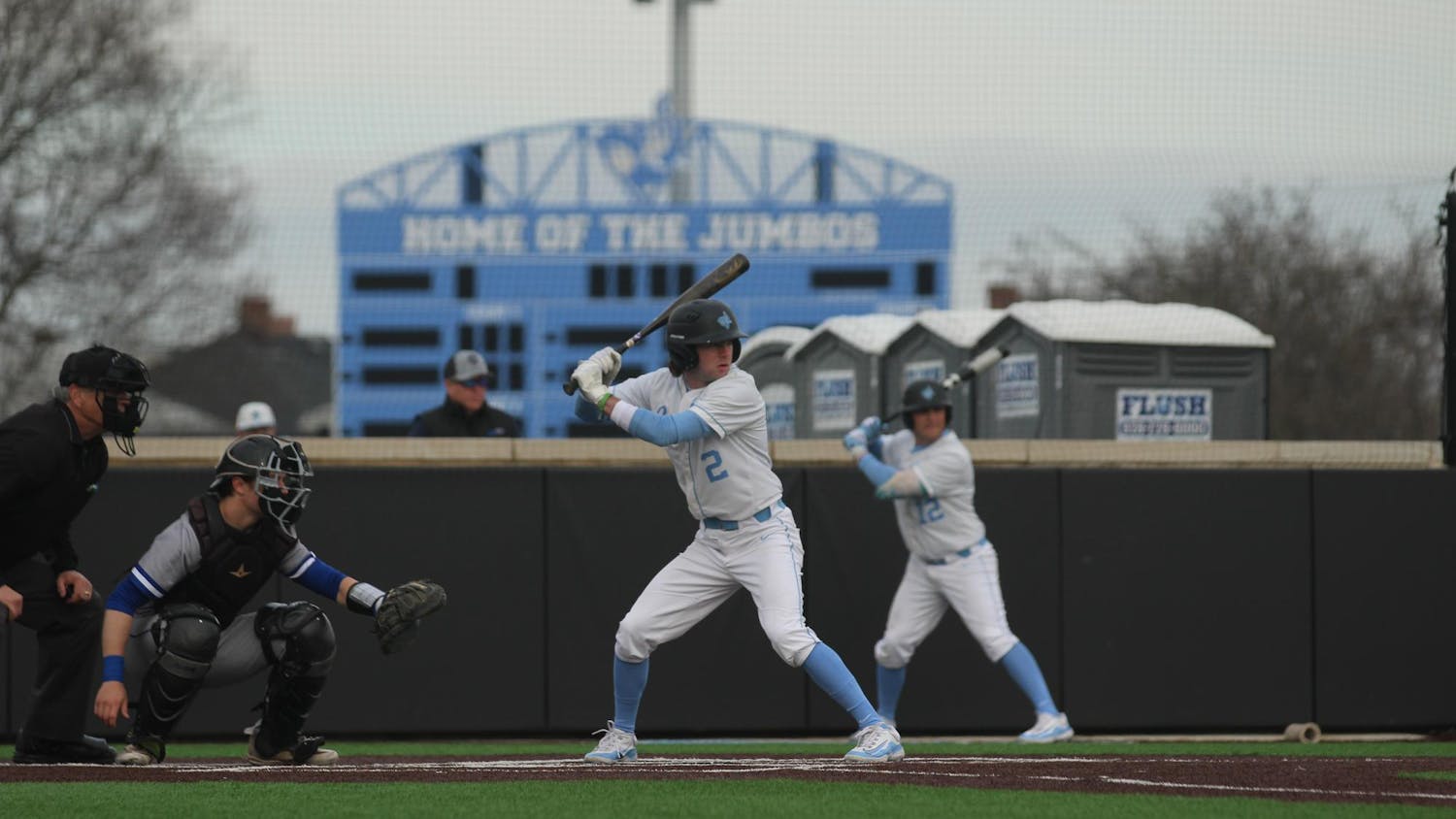At Tufts, there’s something for everyone. Anyone can find a passion to pursue and a community of like-minded people to share that passion with. A big piece of that, of course, is within the athletics department, where teams share familial bonds as they compete against the best that the NESCAC and Div. III have to offer.
Tufts is unique in that it’s the only school in the NESCAC to offer something crucial to its students' education and success in the job market. And no, it’s not the delicious vegan craisin walnut bars. It’s the School of Engineering. While engineering and sports don’t seem like two communities that the average student would consider to be connected, many athletes on campus thrive on the field and in the Science and Engineering Complex (SEC).
First-year men's soccer midfielder Travis Van Brewer, for example, predicated his postsecondary academic and athletic career around engineering.
“For me, I wanted to definitely look at a school with high-level academics and high-level soccer where I could play,” he said.
Van Brewer explained that his desire to study engineering also crossed many schools off his list. With no other NESCAC schools having an engineering school (though some offer combined-degree programs), they were all immediately out. Van Brewer received some interest from Div. I schools, but due either to anticipated rigor or scheduling conflicts, none of the Div. I teams allowed him to be an engineering student and a soccer player.
Along came Tufts, which checked off all of the boxes Van Brewer wanted. In his first two months as an in-season athlete and an engineering student, he feels great about what those around him have done to accommodate his interests. Between the institution itself allowing him to pursue both passions and the people he’s interacted with in both circles, he has had a smooth transition into a very heavy workload.
“It’s pretty easy to balance if you just manage your time right,” Van Brewer said. “Teachers are really understanding and so far have been accommodating to any schedule conflicts, and coach [Josh] Shapiro has been here for years and knows how to work with everyone.”
The same sentiments are shared by older athletes who have had a full three years of engineering and varsity sports. Senior cross country runner, track runner and electrical engineering major Danielle Skufca has faced some scheduling conflicts throughout her time as an engineer but has usually been able to overcome them. The primary cause of these conflicts is the way in which the engineering school’s curriculum is constructed. There are many required classes that simply aren’t flexible.
“I think one of the unique things [about the engineering program] is you come in and your schedule for pretty much your entire college career is pretty set,” she said. “You take all your basics in your first year and get a little bit of choice as far as what you want in humanities and electives... By junior year, everyone in your major is taking the same classes.”
Skufca noted that one positive outcome to this setup is that she knows all of the other electrical engineering majors in her class.
In turn, the immutability of the curriculum can cause problems for athletes. For example, Skufca has to take a class this semester that meets from 3 p.m. to 4:15 p.m. every Tuesday and Thursday. Unfortunately, as practice for cross country starts at 3 p.m. on Tuesday and Thursday, she has to work out in the morning instead of with the team. While this is a challenge that likely could have been overcome with the flexibility that undergraduates in the School of Arts and Sciences enjoy, it presents a real challenge that is difficult for a student in the School of Engineering.
Skufca noted that while these conflicts are frustrating, the university’s status as a Div. III school has been key in ensuring that her coaches and teachers always understand that her academics are crucial and take precedence. Even though running is extremely important to her, engineering comes first.
The perks of Div. III as an athletic division that focuses on academics are enjoyed by all. At Tufts and all other Div. III institutions nationwide, a number of scheduling rules are in place to ensure that student-athletes are able to balance their schedule without sports or academics ever becoming a detriment to the other.
A well-known rule in Div. III athletics is that a team can’t hold official practices during the off-season, ensuring the players can focus fully on school when they have no games to play. However, some athletes don’t mind the rigor that comes from a full schedule of engineering and sports.
“In-season I feel like I’m much more productive,” senior cross country runner, track runner and biomedical engineering major Thomas DePalma said. “Once we have that huge time commitment for practice, three hours a day or so, it kind of forces us to schedule the rest of our day [around practice]. I actually find it makes me more efficient.”
A recurring theme among many athlete-engineers has been time-management skills, which have been necessitated by the busyness of their schedules. With mandatory, rigorous courses, combined with a consistent practice schedule (not to mention the actual games), Tufts athletes have to learn how to budget their time to succeed in both areas.
One of the biggest supports for athletes as they navigate their way through these obstacles are their fellow teammates. Many players have plenty of engineering friends on their team that they can go to for help with difficulties they might be having in school.
“People on the team like to take classes together,” DePalma said. “[Whether] you’re a first-year or a senior, it doesn’t really matter. Everyone’s always helping each other with work, talking and making sure everyone’s doing well.”
Van Brewer was assigned an academic mentor on the soccer team, as were all of the other first-years. Naturally, his is an engineering major. His mentor, sophomore defender and electrical engineering major Tanner Jameson, has been especially helpful to him in his first semester, as he took many of the same classes Van Brewer is currently taking. According to Van Brewer, Jameson has provided valuable advice on how to be successful academically in the first months of college, which includes the entirety of the men's soccer season.
Skufca also recalled the guidance she received from upperclassman engineers on the cross country and track teams. Now, she appreciates the fact that she can give the same help to the four first-year engineers on the cross country team this season.
While balancing two very time-consuming passions creates a unique Tufts experience for engineers, it seems to be a challenge that can be overcome with a strong personal work ethic and the helpful hands of people around campus. It is important to remember that while the world of engineering may seem foreign to someone studying liberal arts, everyone here is a Tufts student with passions that take time and effort.
“I don’t think anybody here has an easy time with what they’re doing,” Skufca said. “Everybody’s working really hard with what they’re passionate about, which is something I love about Tufts.”
For engineering students and athletes, those passions just happen to come in the form of sweat and solid-state physics.
The best of both worlds: balancing engineering and athletics at Tufts

Tufts midfielder Travis Van Brewer, E, '21, attempts to block and intercept the ball from a Middlebury player during Tufts' 4-0 win on Saturday, Oct. 7.





